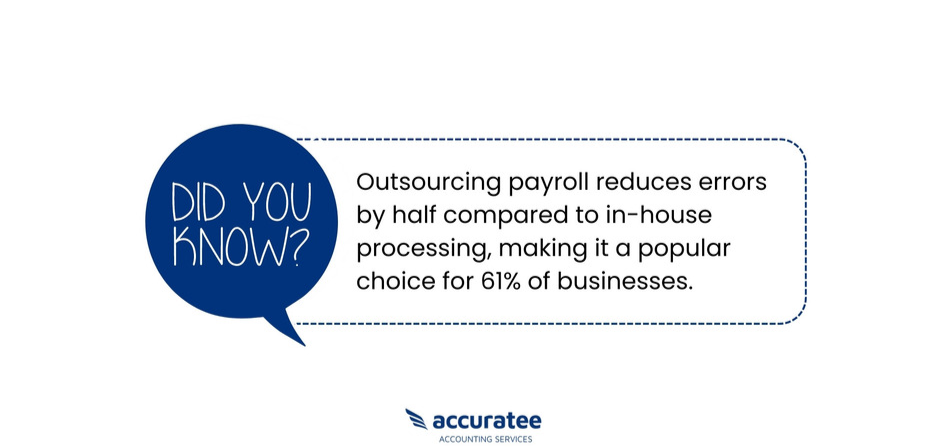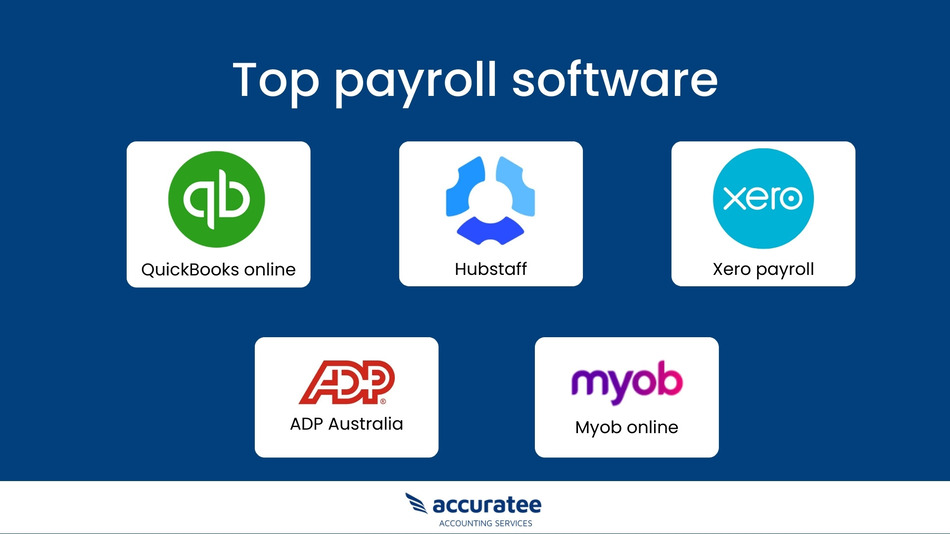Payroll errors to avoid: Common mistakes and how to prevent them
Introduction:
Whether you are a small business or a growing enterprise, payroll compliance is a crucial aspect of managing your workforce. It goes beyond simply paying your employees; it encompasses various legal obligations under federal government law, including hiring and firing procedures, salary entitlements, leave benefits, bonuses, and more. Moreover, payroll intricately connects with PAYG, payroll tax, superannuation, and accounting processes.
Given the extensive scope of payroll and the complexity of regulations, businesses often face challenges in navigating the landscape and adhering to best practices. Payroll mistakes can be costly, impacting not only small businesses but also larger enterprises.
To help you navigate the intricate world of payroll management and avoid pitfalls, this blog aims to provide valuable insights. We, at CleanSlate, a reputed online accounting and bookkeeping service provider in Australia, will shed light on the most common payroll mistakes employers make, and offer practical guidance on how to steer clear of them.
By understanding the intricacies and implementing best practices, you can ensure compliance, mitigate risks, and foster a positive employer-employee relationship.
Key takeaways
Establish a well-organised payroll management system to ensure accurate and timely payments.
Invest in reliable payroll software to minimise the risk of errors and streamline payroll operations.
Prioritise transparency by providing employees with online access to their pay stubs and communicating changes in payroll policies and regulations.
Utilise professional payroll services to build and implement a tailored system that meets specific needs.
What are the consequences of making payroll errors?
-
Penalties and fines from local tax authorities:
Payroll mistakes can result in financial penalties imposed by government agencies such as the Fair Work Commission or the Australian Taxation Office (ATO). These penalties vary depending on the severity of the violation and can significantly impact your business's finances.
-
Legal liabilities and potential lawsuits:
Payroll mistakes may expose your business to legal liabilities, including potential lawsuits from employees. For example, if you underpay employees or fail to provide proper entitlements, the affected employees may take legal action to recover the owed amounts or seek compensation for damages.
-
Damage to reputation and trust among employees:
Payroll errors can erode trust and confidence among your employees. Mishandling their pay can lead to dissatisfaction, decreased morale, and strained relationships. This can have a lasting negative impact on your brand and ability to attract and retain talented staff.
-
Financial losses due to incorrect payments and payroll correction:
Payroll mistakes can result in incorrect payments to employees, leading to financial losses for both parties. Additionally, rectifying errors often incurs additional costs, such as processing fees, penalties, or hiring professional assistance to resolve the issues.
-
Non-compliance with tax regulations and reporting requirements:
Payroll mistakes can result in non-compliance with payroll laws, including incorrect reporting of employment taxes withheld or superannuation contributions. Failure to meet these obligations can trigger audits, investigations, and potential penalties from the ATO.
-
Potential loss of eligibility for government benefits or incentives:
Certain federal government benefits or incentives for businesses may have eligibility criteria based on payroll compliance. Making payroll mistakes could result in disqualification from such programs, leading to missed opportunities for financial assistance or support.

What are the most common payroll mistakes that small and medium businesses make and how to prevent them?
-
Misclassifying employees:
Misclassifying employees is a critical payroll mistake that can have significant consequences for businesses. It involves incorrectly categorising employees as full-time, part-time, or casual, which can lead to violations of employment laws and regulations. Misclassification can result in underpayment or denial of entitlements such as leave, overtime wages, or superannuation contributions. It can also lead to non-compliance with minimum wage requirements, taxation obligations, and industry-specific awards.
To avoid misclassification errors, it is vital to understand the distinctions between employee classifications, review and update employment contracts accordingly, maintain accurate payroll records of working hours, and seek professional guidance when needed.
-
Incorrect deductions:
Incorrect deductions in the payroll process can lead to serious issues for both business owners and employees. This payroll error occurs when deductions such as payroll taxes, superannuation, or other withholdings are calculated incorrectly or applied erroneously. This can result in employees being underpaid or overpaid, causing complications for both parties. Additionally, inaccurate payroll deductions can lead to non-compliance with tax laws and superannuation requirements, potentially resulting in penalties and legal consequences for employers.
It is necessary to accurately calculate and apply deductions based on applicable tax rates, employee agreements, and legislative requirements. Regularly reviewing and double-checking deductions, as well as utilising an automated payroll system, can help prevent these errors and ensure accurate and compliant payroll processing.
-
Ineffective time-tracking:
Ineffective time-tracking is one of the most common payroll errors that can lead to inaccurate payment and compliance issues. When businesses do not have proper systems in place to track and record employee hours worked, it becomes challenging to calculate wages accurately. Inadequate time-tracking also makes it difficult to determine eligibility for overtime pay and other entitlements, potentially resulting in compliant issues with employment laws and industry-specific regulations.
To avoid this error, businesses should implement reliable time-tracking systems that accurately capture employees’ working hours. This can include digital timekeeping tools, biometric attendance trackers, or well-maintained timesheets.
-
Miscalculated tax rates:
Miscalculated tax rates in payroll can lead to non-compliance with the fair labour standards act. Accurate calculation of taxes is essential for ensuring employees' income tax deductions are withheld correctly, as well as meeting obligations related to other deductions like Medicare levy and HECS/HELP repayments. Errors in employment tax rates calculation can lead to financial hardships for employees and potential penalties for employers.
To avoid miscalculated tax rates, it is essential to stay updated with the latest tax tables and guidelines provided by the Australian Taxation Office (ATO), utilise reliable payroll software or services that incorporate accurate tax calculations, and regularly review and verify tax calculations for accuracy.
-
Failing to stay up-to-date with payroll law:
Staying up-to-date with payroll law is essential for businesses, given its complexity and frequent updates. However, many small and medium-sized companies delegate payroll tasks to individuals who lack expertise in this area. The problem arises when businesses categorise the payroll process solely as either a finance or HR function, failing to recognise that it requires the knowledge of both. Ignorance of the ever-evolving payroll regulations leads to mistakes stemming from outdated practices and rules. Unfortunately, accidental errors do not receive leniency, and fines can still be imposed.
This issue often arises due to a combination of limited time and expertise among non-payroll specialists, making firms susceptible to compliance risks and penalties. Staying informed and seeking professional payroll expertise is crucial to avoid the repercussions of inadequate payroll law knowledge.
-
Using outdated payroll software:
Using unreliable payroll software can lead to significant payroll errors and compliance issues. Relying on outdated or inefficient payroll systems increases the risk of inaccuracies, delays, and payroll data loss, which can result in incorrect payments to employees. This can lead to underpayment or overpayment of wages, causing financial difficulties for employees and potential legal consequences for employers. Additionally, dated payroll methods may not incorporate the latest tax rates, superannuation requirements, or industry-specific regulations, resulting in non-compliance and potential penalties.

To avoid this error, businesses should invest in the latest automated payroll system or outsource their payroll functions to reputable payroll provider like CleanSlate, a trusted online accounting and bookkeeping service provider. It is crucial to select a payroll system that can handle the complexity of payroll regulations and provide accurate calculations, automatic updates, and robust data security.
-
Transparency issues:
Maintaining transparency in payroll processes is vital for fostering trust and a positive employer-employee relationship. It goes beyond accurately calculating and paying employee wages; employers must also ensure employees understand the details of their payroll setup. This includes providing a breakdown of salary components, such as base pay, overtime wages, allowances, and deductions. Transparency extends to the use of third-party payroll services, where employers should be aware of data collection and privacy measures.
Regular communication about changes in payroll policies and regulations also promotes transparency. By prioritising clarity, businesses can build trust, demonstrate fairness, and create a positive work environment for their employees
-
Missing payroll tax deadlines:
Meeting payroll tax deadlines is essential for businesses to avoid pay late fees, lawsuits, and potential cash flow issues. Different jurisdictions have specific deadlines that must be adhered to, and it is necessary to stay compliant with all of them. While it may be tempting to postpone payroll processing, the risks outweigh the benefits. Failing to meet the pay period can result in severe consequences, including financial penalties and even imprisonment for nonpayment of payroll taxes, especially for large employers.
Moreover, employees may have their taxes withheld, and additional fines may be levied against the company. The Australian Taxation Office (ATO) can impose fees if outstanding payments are discovered, further compounding the financial impact. By effectively managing payroll processes, businesses can ensure timely payment and avoid the detrimental consequences of missing payroll deadlines.
Expert Bookkeeping at Your Fingertips!
Wrapping up
To ensure accurate and timely payments to your employees, it's necessary to establish a well-organised payroll management system. By implementing efficient processes, you can reduce the risk of errors and streamline payroll operations. A streamlined system not only saves time but also minimises the stress associated with payment processing. For instance, providing employees with online access to their pay stubs reduces anxiety and uncertainty regarding paycheck schedules.
A robust payroll management system offers several advantages, including improved accuracy, cost savings, and a competitive edge. It helps avoid potential problems that may arise from payroll errors, such as financial losses and damage to your brand reputation. To design an effective system, start by evaluating your workforce composition, identifying the number of employees, and understanding their core responsibilities. Armed with this information, you can make informed decisions about the most suitable payroll management solution for your business.
CleanSlate, as a trusted payroll service provider, can assist in building and implementing a tailored system that aligns with your specific needs. With our expertise and advanced tools, you can optimise payroll operations, minimise errors, and focus on growing your business.









